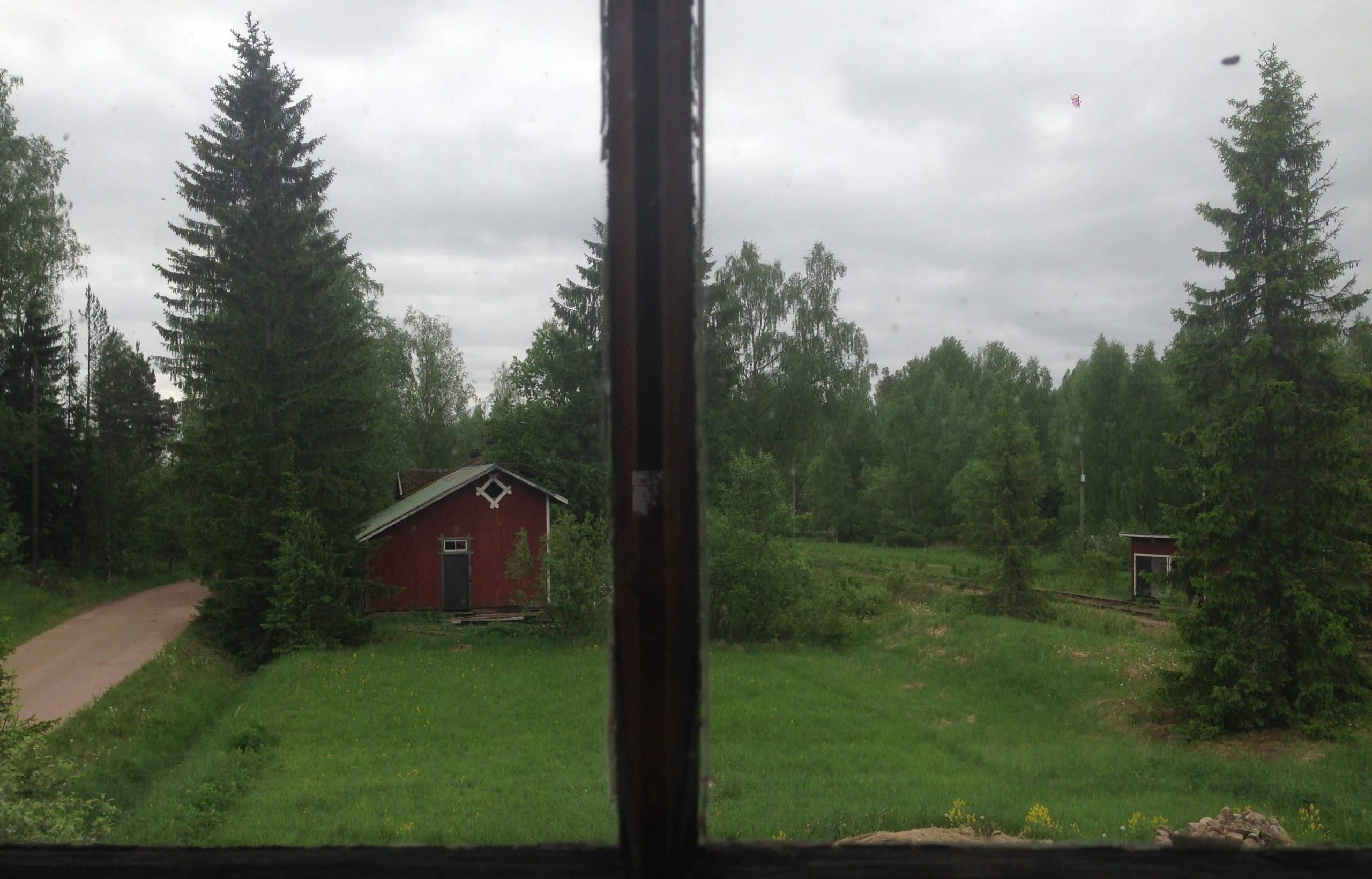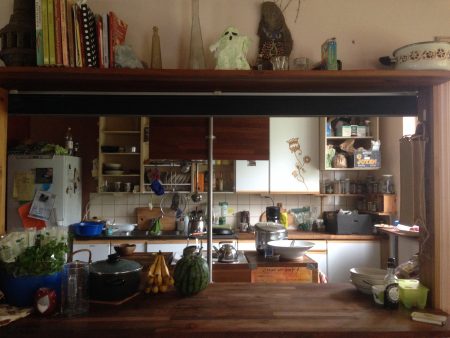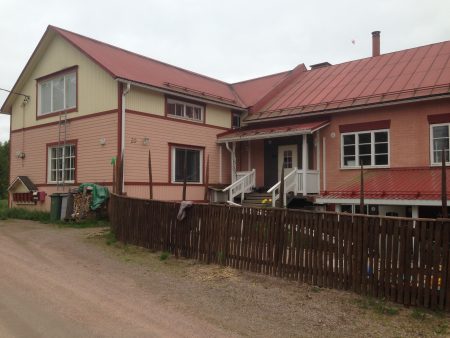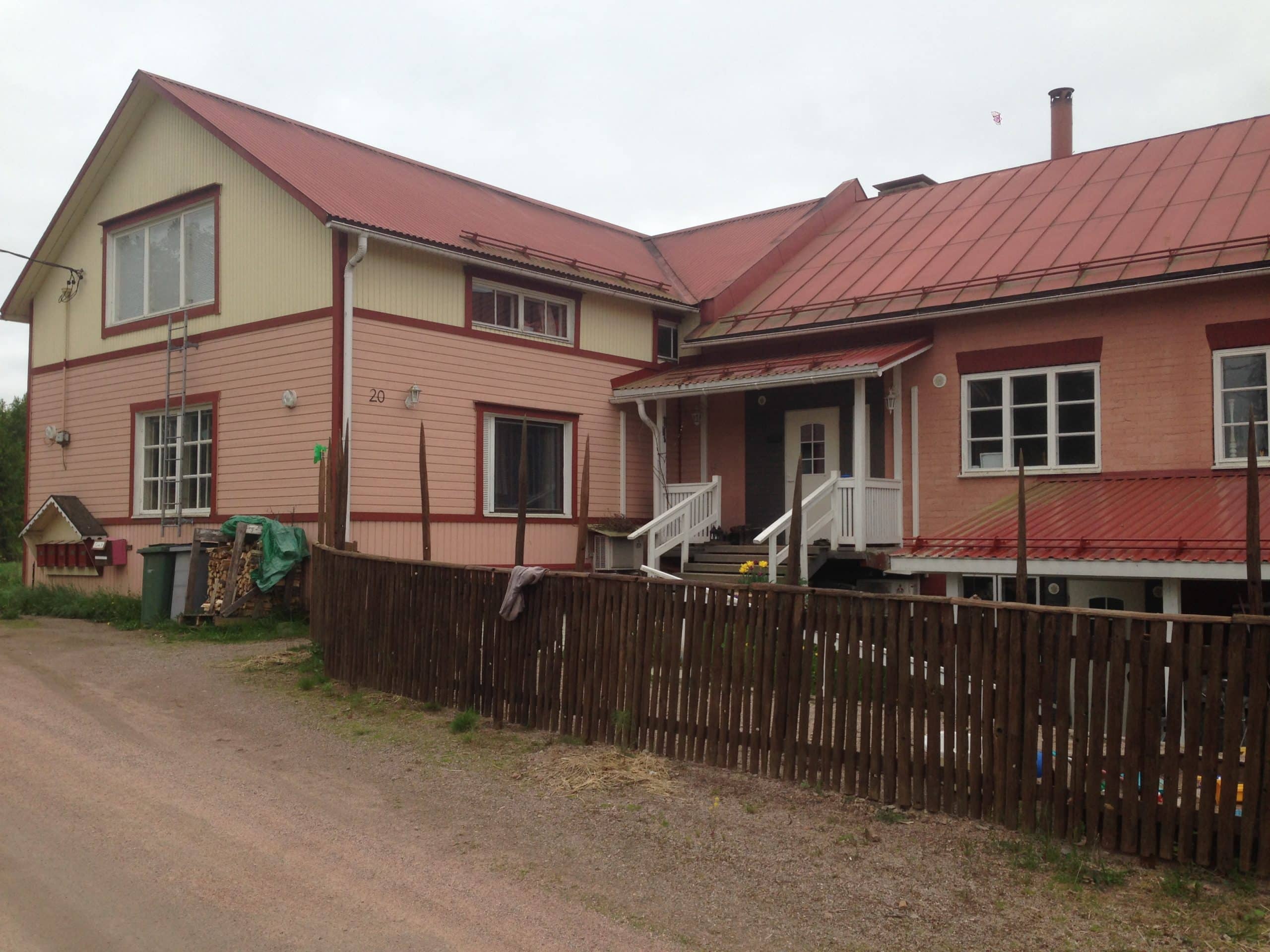
By Siri Pisters
A few weeks ago I officially visited my first eco community in Finland – Ihala. If I understood correctly, it means something in the direction of bright place. I joined an open community weekend and GEN(Global Ecovillage Network)- Finland gathering at the same time. The group of people attending was small for the simple reason that it is spring in Finland, which means there is usually lots of work to do in and around eco communities. For me a perfect small gathering to slowly get immersed in the ecovillage network in Finland.
IHALA at the moment consists of four adults and three children living in a large communal house that used to serve wood trading purposes. It belongs to the community of Porlammi, just an hour drive from Helsinki. To get an impression of IHALA, they have a nice website .

The opening line on their website says ‘your authentic self in union with all’. This, I learned during the weekend and from all the readings I have done so far for my research, is something that needs to be practiced. As for us, individualized Westerners, we have unlearned how to live in communities and it is scary to get out of our comforting, individualized zones to truly open up to others again.
Getting out of our comfort zones and getting together is however truly powerful in creating new ways of living that are simultaneously improving human health and wellbeing and environmental health and wellbeing. Sustainability and human wellbeing go hand in hand, which I believe is the most powerful point of departure towards regenerating and transforming our societies towards ‘socio-natures’ or human-nonhuman assemblages’[1] that allow for a thriving Earth.
The Friday evening was all about coming together by means of a circle. This is a way of communicating and coming together in groups often used in communities. By sitting together in a circle and passing an object from one person to the other, it is made sure that everyone gets space to talk about what is on their heart at this very moment. Everyone is listened to without being interrupted.
Soon it became clear to me that the ecovillage network in Finland had recently lost someone very dear to them: Heiti, the man of a thousand stories. I came to understand that he was quite a character and meant a lot to the ecovillage network. Have a look at this short movie Man of thousand stories – Tuhannen Tarinan Mies.
The next day I got acquainted with the Finnish concept of ‘Talkoot’ freely translated as ‘gathering for combined work and enjoyment’. So we did. I helped out on the piece of land the community is using to grow some vegetables. The land is not their property, but their neighbors have given it to them to use. Together we did some weeding and prepared pumpkin beds.
After a nutritious lunch and some sauna, I came to know about the great variety of activities the Finnish eco villagers are involved. From learning how to build houses from sub soil in the UK, to coming back to oneself in nature at a Wildcamp retreat in Spain, to working with youth in facilitating their search for purpose. Rather than being isolated islands, most ecovillages actively reach out to learn, educate and co-create sustainable practices in numerous ways and in numerous places.

On Sunday Ronski Kosky led us through a process from connecting with ourselves to an authentic connecting with the other. Ronski is ‘a community weaver’: he travels around visiting eco-communities and facilitating processes of community building, including communication and leadership, to help communities to thrive. He is described as ‘dynamic, intuitive, inspiring and personal’. His trainings are based on non-violent communication, the art of touch, yoga and dance. For me it is an interested process and very valuable in my daily life, to learn to ‘tune in’ with myself and from there connecting with the other.
In July, the Luova Kasvo community in Finland will host the Community Leadership workshop – Rising Together, which has been developed by Ronski Kosky. Unfortunately I’m not able to participate inthis workshop, as I will be in Spain for the yearly conference of the Global Ecovillage Network. More on this conference in July!
[1] These concepts come from authors that seek to go beyond the human-nature dichotomy and aim to understand places as not either society or nature but as complex human-nonhuman assemblages, or socio-natures or eco-cultures. See for example:
Braun, B. (2008). Towards a New Earth and a New Humanity: Nature, Ontology, Politics. In David Harvey (pp. 191–222). Oxford, UK: Blackwell Publishing Ltd.

